
-
Find the right food for your petTake this quiz to see which food may be the best for your furry friend.Find the right food for your petTake this quiz to see which food may be the best for your furry friend.Featured products
 Perfect Weight Small & Mini Adult Dog Food
Perfect Weight Small & Mini Adult Dog FoodHill's Science Plan Adult Small & Mini Dog Food with Turkey is a complete premium pet food for adult small dogs from 1 year old that are prone to weight gain or slightly overweight. This deliciously smooth mousse is formulated to deliver the appropriate amount of energy to support weight maintenance in adult dogs.
Shop Now Hypoallergenic Small & Mini Adult Dog Food
Hypoallergenic Small & Mini Adult Dog FoodHILL'S SCIENCE PLAN Hypoallergenic Small&Mini Adult dog food with Salmon is complete pet food for adult small dogs 1–6 years old. It's formulated for dogs with delicate skin and stomach, with limited high quality novel protein sources & no grain.
Shop Now Perfect Digestion Small & Mini Adult Dog Food
Perfect Digestion Small & Mini Adult Dog FoodHill's Science Plan Perfect Digestion Small & Mini Adult Dog Food with Turkey is a complete premium pet food for small breed adult dogs aged 1–6 years. This deliciously smooth mousse is precisely balanced to deliver the appropriate amount of energy and to support digestive health in adult, small breed dogs.
Shop NowFeatured products Urinary Health Adult Cat Food with Chicken
Urinary Health Adult Cat Food with ChickenHill's Science Plan Urinary Health Adult Cat Food with Chicken supports the health of the whole urinary system. Suitable for sterilised cats.
Shop Now Sterilised Mature Adult Cat Food
Sterilised Mature Adult Cat FoodHill's Science Plan Sterilised Cat Mature Adult Cat Food with Chicken is specially formulated with ActivBiome+ Multi-Benefit Technology. It is a precisely balanced nutrition tailored to meet the needs of mature adult sterilised cats, ages 7+, and to promote graceful ageing.
Shop Now Oral Care Adult Cat Food
Oral Care Adult Cat FoodHill's Science Plan Oral Care Adult Cat Food with Chicken contains clinically proven kibble technology to reduce plaque & tartar build up.
Shop Now -
Dog
- Dog Tips & Articles
-
Health Category
- Weight
- Food & Environmental Sensitivities
- Urinary
- Digestive
- Joint
- Kidney
-
Life Stage
- Puppy Nutrition
- Adult Nutrition
- Senior Nutrition
Cat- Cat Tips & Articles
-
Health Category
- Weight
- Skin & Food Sensitivities
- Urinary
- Digestive
- Kidney
-
Life Stage
- Kitten Nutrition
- Adult Nutrition
Featured articles Develop your gut instinct | Hill's Pet
Develop your gut instinct | Hill's PetDigestive disorders can affect any part of the digestive system, from the stomach, small intestine and through to the large intestine.
Read More Virtual Vet Visits: What You Need to Know
Virtual Vet Visits: What You Need to KnowLearn the ins and outs of a televet appointment before you talk to a vet online.
Read More Tips For Mixing Wet And Dry Pet Food
Tips For Mixing Wet And Dry Pet FoodDiscover tips for mixing wet and dry pet food to ensure balanced nutrition and variety for your pet. For comprehensive feeding advice, visit Hill's Pet UK.
Read More -


Your cat's age is something that needs to be considered when choosing the best food for your cat, whether you're searching for kitten food or senior cat food. Selecting one that provides your furry friend with the optimum nutrition they need at each lifestage can help to ensure a long, healthy life.
When searching for a cat food, check the packaging to see if it matches your cat's lifestage. A cat requires different levels of nutrition at every lifestage, so it's important to choose one that matches their energy level, metabolic rate and other basic needs. Sometimes all this information can make cat food labels harder to read, however, so it's important to know what your cat needs and why.
According to the Cat Care for Life initiative from International Cat Care, there are six identifiable stages of a cat's life;
Kitten 0-6 months
Junior 7 months to 2 years
Adult 3-6 years
Mature 7-10 years
Senior 11-14 years
Super senior 15+ years
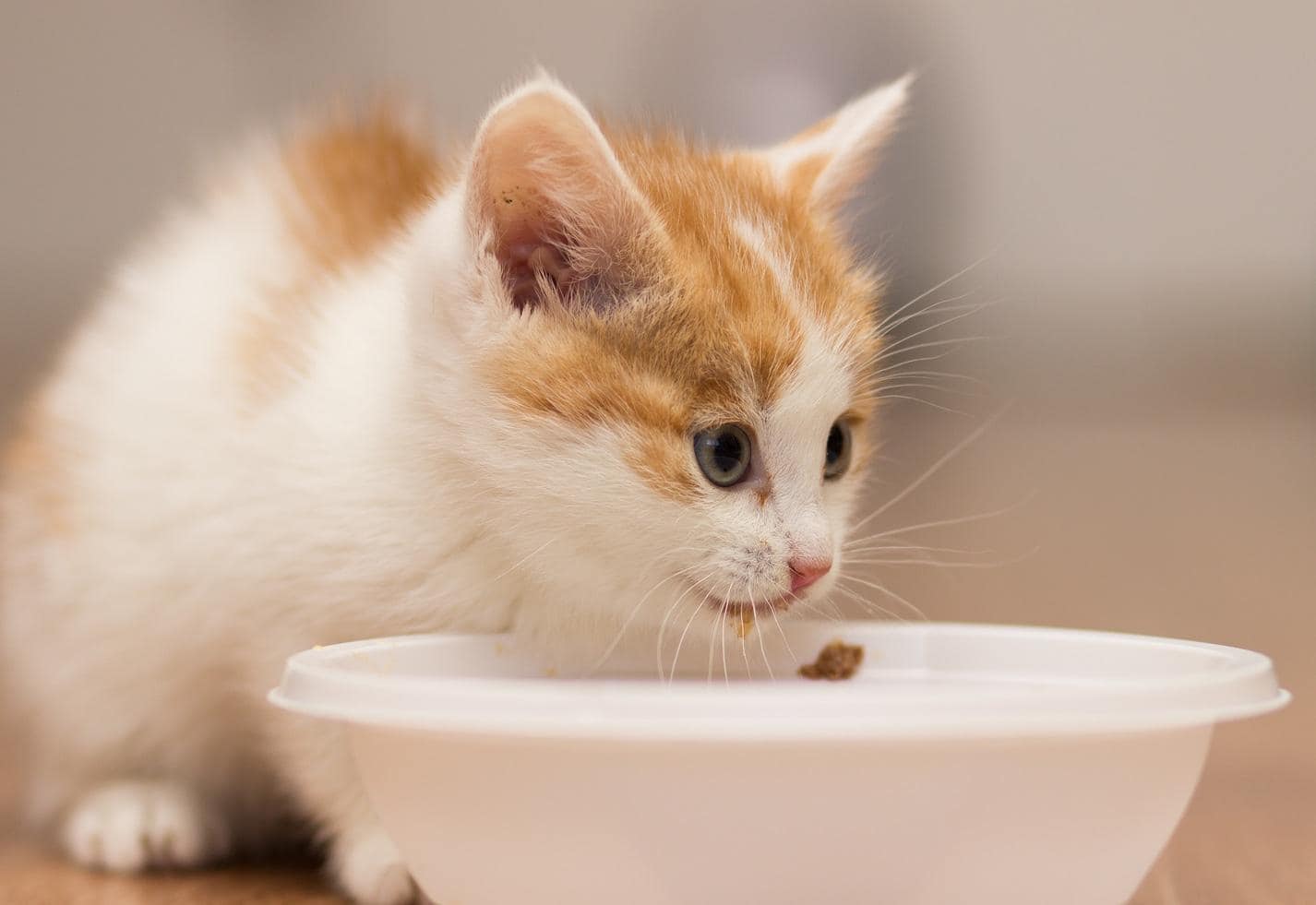
Kitten (birth to 6 months)
New-born kittens should stay with their mother until at least 9 weeks of age as they will rely on their mother's milk to help them grow and fight off diseases that their immune system is not quite equipped to deal with. During these early weeks time, they will do little else other than nurse and sleep.
When your kitten is 8-9 weeks old, they will be ready to wean off their mother's milk and then come home with you. After they are weaned and ready to go home, you'll immediately discover that they’re a ball of energy with a zest for life. At this stage, a kitten's routine follows the pattern of eat, sleep, run around like crazy, repeat. They require the right nutrients to maintain their boundless energy.
Growth and development is hard work and this lifestage is probably the most important to get right. Good nutrition at the outset can help ensure that both your kitten’s body and brain develop optimally. Kitten food should be made with fatty acids, such as DHA (a common source of this nutrient is fish oil), folic acid, and taurine, an amino acid that aids in the vital development of the immune and digestive systems, heart functions and vision quality. Protein is another vital component of kitten food and comes from a variety of sources, mostly meat. Cats and kittens can very easily get hooked on certain textures of food, such as kibble versus wet food. If you can, feed a variety of textures from a young age to keep them accepting all sorts. This is useful because at some points in their life they may need to eat certain types of food, such as large, dry kibble for dental health, or wet food for bladder problems. Keeping them flexible from the word go can help both of you later on.
They are growing at an astonishing rate (this stage is equivalent to the first ten years of a human's life) and need energy to keep up the pace. It's important that these nutrients are always in the right amounts to ensure the best opportunity to be healthy as they grow. Don’t forget that kittens need mental stimulation as well and have lots of other needs.


Tasty Tips
Junior cats (7 months to 2 years) and adult cats (3-6 years)
If your cat’s behaviour changes as they approach the one-year mark, don't be surprised. They’re beginning adolescence and then moving on to adulthood, lifestages that correspond to the human ages of 12-24 and 28 to 40 respectively.
Junior cats will need fewer calories per kilo of bodyweight than younger kittens but still more than an adult cat. They are still growing slightly and will still be energetic. Most cats are neutered between 4 and 6 months and this can reduce their calorie needs.
Technically, cats are considered to be adults at the age of one year and that will extend through year six, but age is not necessarily a determining factor in how active your cat will be. Many cats will be very lively well into their double-digit years. For this reason, one of your considerations for feeding a young adult cat should be activity level. An average cat will need enough food for "maintenance" energy to go about their daily activities, but if your cat is extremely active and spends hours sprinting around the house or roaming around exploring the garden and climbing trees, they’ll need more calories to sustain them. If your pet likes to laze in the sunshine all day, they might require carefully measured meals to keep them trim. Talk to your vet about your cat's activity level, as they can help you determine if your cat needs more or fewer calories.
Throughout your whole cat’s life, regular weight checks are crucial for keeping them slim and spotting issues ahead of time. It can also help your vet advise you about feeding amounts as your cat grows and their activity levels vary.
Mature cats (7-10 years)
Cats in this lifestage correspond roughly to 44-56 human years. While your cat won't (necessarily) experience a mid-life crisis, their eating habits may change and they may become a little more finicky with their food choices, so you'll need to ensure they get the nutrients they need while staying properly hydrated. Always make sure your cat has access to clean, fresh water. Some cats prefer running water and cat fountains can be a great way to keep your cat hydrated.
This is also a time of life when cats' nutritional needs shift, whether because of medical issues or simply ageing. In some instances, too much or too little of any one ingredient may impact their health. Remember, you'll want to keep an eye on your cat's weight as their activity level may decrease, which could lead to obesity. Avoid the calorie-rich food formulated for kittens and young adult cats; instead, look for foods that are formulated with their needs as an ageing cat. Watching their calorie intake not only keeps their weight in a healthy range but also reduces the risk of diseases, such as kidney disease, certain cancers and osteoarthritis.
Food for mature cats tends to be lower calorie and higher fibre than adult cat foods. This helps to keep them slim but still ensure they feel full and not hungry all the time. As with all stages, your individual cat may be more or less active than one of their peers so keep on top of weight checks and adjust their ration as need be.
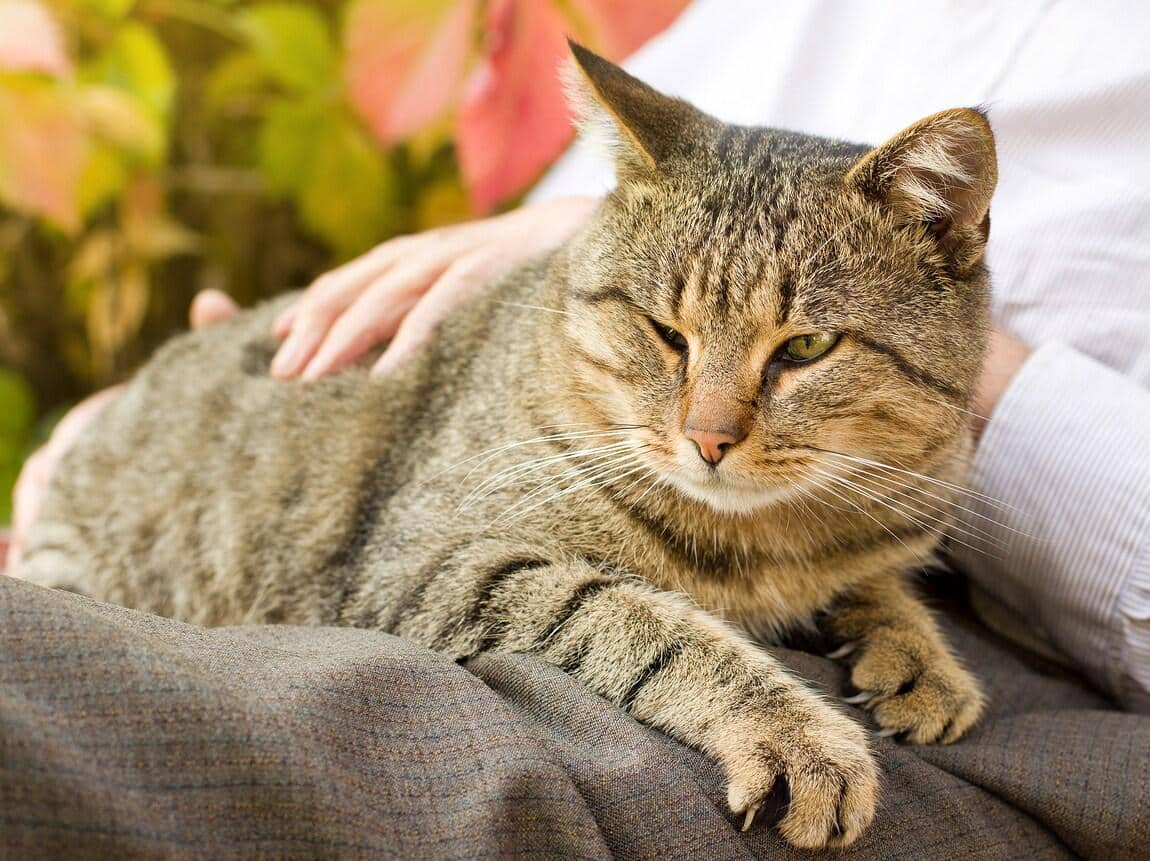
Senior cats (11-14 years) and Super senior cats (15+ Years)
In their golden years, your cat may start to seek more attention from you, become more affectionate and reduce their activity level. As their behaviour changes, so do their mealtime needs. These lifestages correspond to 60-72 years and 76+ years for humans.
While mature cats sometimes struggle to keep weight off, from the age of 11 years many cats have the opposite problem. They tend to become thin and lose lean muscle mass. Even with reduced activity some senior cats can struggle to maintain their body condition.
Senior cat foods for healthy cats should be highly digestible and contain high quality protein to help maintain muscle mass. Both wet food and dry food (if they are complete and balanced)provide your cat with the ingredients they need, but there are upsides and downsides to each. Older cats often have worn or missing teeth, so they might appreciate something a little softer. Some pet parents try a combination of the two or add just a little wet food — or even some fresh water — to dry kibble. Your cat certainly will let you know their preference, and the two of you, together with your vet, can work to find the perfect fit.
In addition to a nutrient-rich food, your cat needs to stay hydrated in order to stay healthy. This is especially true for senior cats, for whom dehydration can be a side effect of certain medical conditions.
It’s in the senior and super senior lifestages that cats are most likely to have concurrent disease such as kidney or joint disease. As cats are living longer now we also see feline brain ageing, or cognitive dysfunction, just the same as in humans. A diet that is high in antioxidants and fatty acids can make quite a difference for these cases.
Your vet may well recommend a therapeutic diet to address these conditions. Remember to never use such a food without your vet’s advice and always do a gradual transition over at least 5 days when changing foods. This helps acceptance but also helps avoid stomach issues.
In summary
There are, of course, exceptions for each cat lifestage. If there are medical concerns or other issues to address, you should consult with your veterinarian. Your vet can also help you determine the best feeding schedule for your cat including how much to feed at each lifestage as well as when to feed throughout the day. Choosing the best cat food for each stage of your best pal’s life will help to keep them healthy, no matter whether they are young or simply young at heart.


Christine O'Brien is a writer, mom, and long-time cat parent whose two Russian Blues rule the house. Her work also appears in Care.com, What to Expect, and Fit Pregnancy, where she writes about pets, pregnancy, and family life. Find and follow her on Instagram and Twitter @brovelliobrien.
Related products
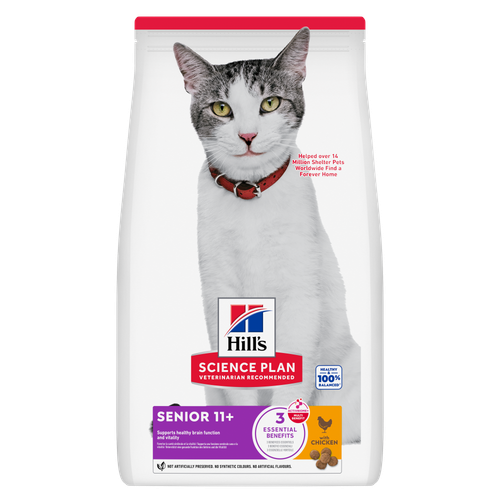
Hill's Science Plan Senior Cat Food with Chicken is a complete pet food, specially formulated with ActivBiome+ Multi-Benefit Technology.
This food supports healthy aging during the golden years. Contains a special ingredient blend to help keep older cats agile, more alert & interactive.

Hill's Science Plan Oral Care Adult Cat Food with Chicken contains clinically proven kibble technology to reduce plaque & tartar build up.

Hill's Science Plan Sterilised Cat Mature Adult Cat Food with Chicken is specially formulated with ActivBiome+ Multi-Benefit Technology. It is a precisely balanced nutrition tailored to meet the needs of mature adult sterilised cats, ages 7+, and to promote graceful ageing.

Hill's Science Plan Urinary Health Adult Cat Food with Chicken supports the health of the whole urinary system. Suitable for sterilised cats.
Related articles
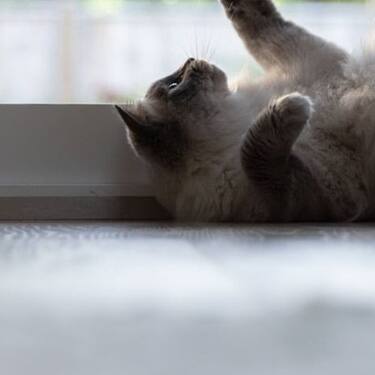
Feeding time can be a wonderful bonding opportunity for you and your cat. Find out how to make the most of it and create a healthy habit with HIll's Pet UK.
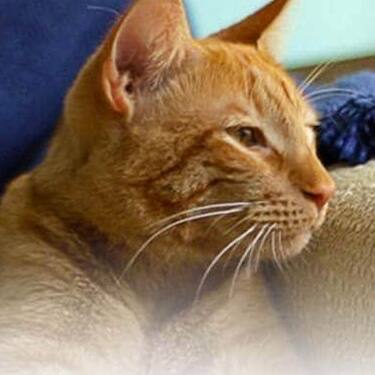
Find the right Hill
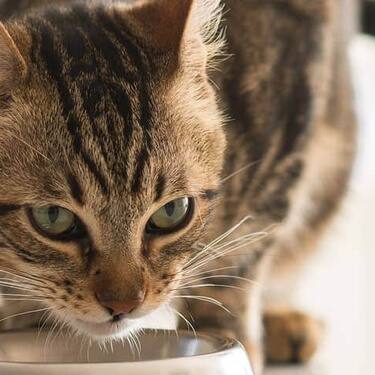
Discover what you can do to spot and support a sensitive cat stomach. See what routines and food you can implement to help your cat be happy and healthy.
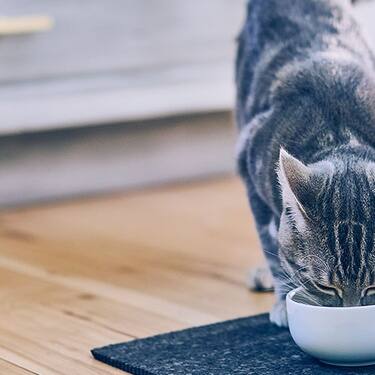
Good nutrition is about the right balance of nutrients. Learn more about health issues when feeding a cat food that has an improper nutritional balance from your friends at Hills Pet Nutrition.

Put your cat on a diet without them knowing
Our low calorie formula helps you control your cat's weight. It's packed with high-quality protein for building lean muscles, and made with purposeful ingredients for a flavourful, nutritious meal. Clinically proven antioxidants, Vitamin C+E, help promote a healthy immune system.
Put your cat on a diet without them knowing
Our low calorie formula helps you control your cat's weight. It's packed with high-quality protein for building lean muscles, and made with purposeful ingredients for a flavourful, nutritious meal. Clinically proven antioxidants, Vitamin C+E, help promote a healthy immune system.

